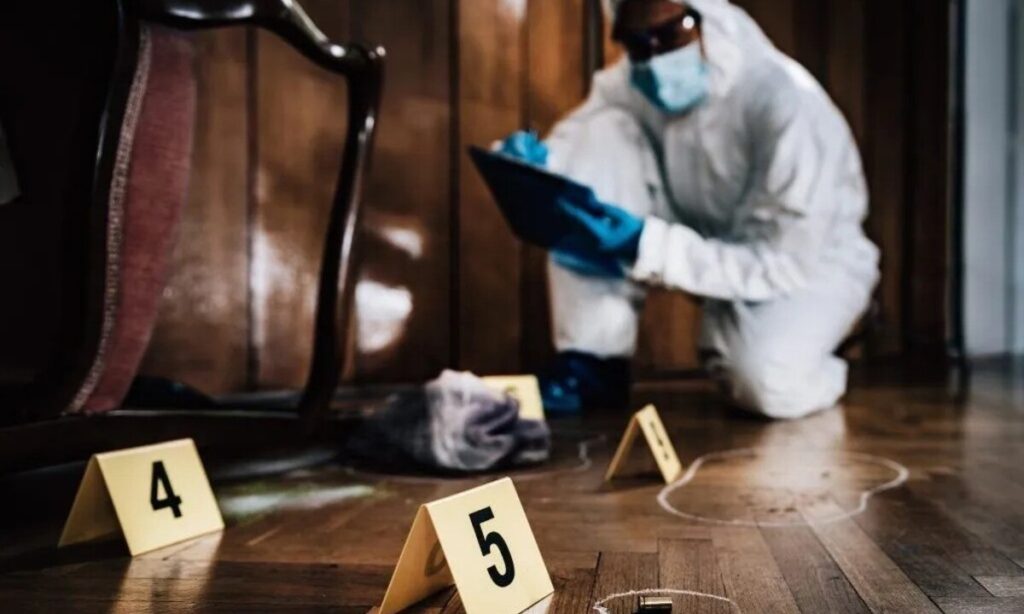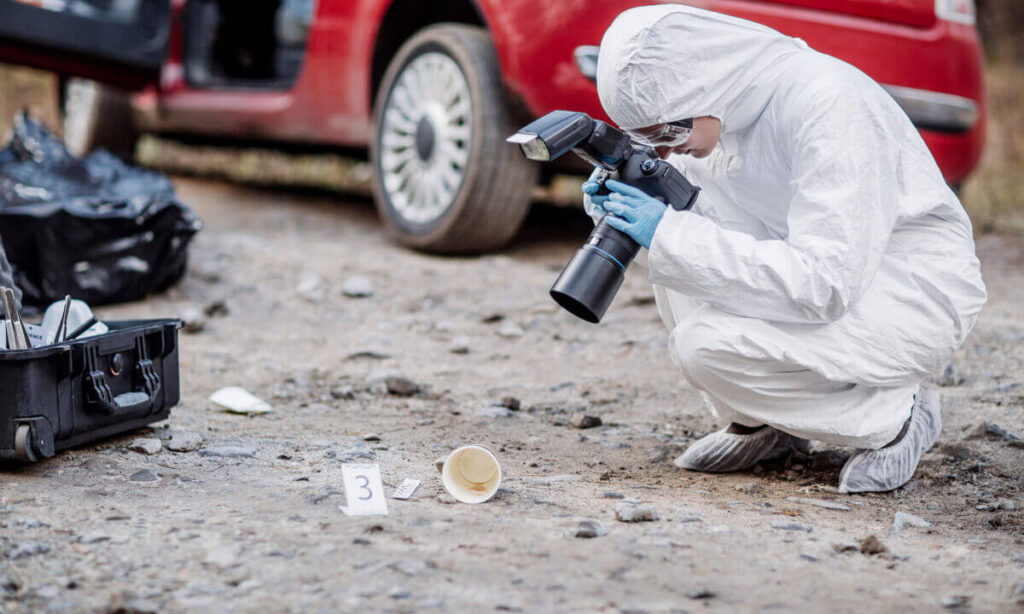The fascinating mysteries and sophisticated puzzles that detectives solve on both the page and the screen have long caught the curiosity of people. However, outside of fiction, the path to become a real-life detective is not only intriguing but also difficult. It necessitates a distinct set of talents, determination, and a strong commitment to justice.
In this detailed guide, we will walk you through the stages and criteria for becoming a detective. We will give you with a path to traverse the challenging and rewarding job of a detective, from your early goals to mastering the art of inquiry.
Whether you are a curious person considering a career shift or a young aspiring investigator ready to embark on your professional adventure, this article will be your trusted companion, providing insights, advice, and a clear direction on what it takes to become a detective.
So buckle up, strengthen your analytical skills, and join us as we explore the fascinating world of detectives and learn how to become one.
high School Education
The path to becoming a detective frequently begins in high school, where students can build the groundwork for a career in law enforcement. While particular qualifications differ by location, most prospective detectives must have a high school diploma or equivalent. Students might focus on curriculum that improves critical thinking, communication, and problem-solving abilities to prepare for this professional path. Taking advanced studies in mathematics and physics, for example, can aid with the analytical abilities required for crime scene investigations. Furthermore, courses in criminal justice, sociology, psychology, and forensics might provide useful insights into the topic.
For example, a high school student interested in becoming a detective may join a criminal justice club or engage in a local police department’s youth program, where they can learn about law enforcement techniques firsthand.
College Education
Following high school, many prospective detectives attend college to get a better understanding of criminal justice and law enforcement techniques. Many law enforcement agencies prefer candidates with a bachelor’s degree in criminal justice, criminology, or a similar discipline. College education not only gives a thorough understanding of criminal behavior and the legal system, but it also encourages critical thinking and research abilities.
A student pursuing a degree in criminal justice, for example, may be able to take specific classes such as “Criminal Investigations Techniques,” in which they learn about the complexities of acquiring evidence and conducting interviews. They may also participate in research initiatives researching crime trends in a certain location.
Internship Opportunities
During their college years, prospective detectives should look for internship opportunities to obtain hands-on experience and make contacts in the industry. Many law enforcement agencies provide internship programs that allow students to work alongside seasoned detectives and policemen. These internships provide vital insight into the day-to-day duties of law enforcement professionals, such as evidence gathering, crime scene investigation, and witness interviews.
For example, a criminal justice student could intern with the detective division of a local police department. During this internship, kids might assist in actual investigations, accompany detectives to crime scenes, and learn how evidence is processed in a forensic lab.
Where to go from there
Aspiring detectives frequently begin their careers as police officers or law enforcement personnel after completing their degree and getting necessary internship experience. This entry-level position allows them to hone their abilities and knowledge while working in a uniformed capacity. Detectives can apply for positions in specialized investigation units such as homicide, narcotics, or cybercrime as they gain experience.
For instance, a patrol officer who has worked for numerous years may decide to specialize in homicide investigations. They would next seek for a job in the homicide division and receive extra training in that subject.
What do detectives do?
Detectives play an important part in solving crimes and bringing criminals to justice. To piece together the details of a case, they conduct investigations, gather evidence, interview witnesses and suspects, and analyze information. Detectives frequently collaborate with forensic experts, legal professionals, and members of other law enforcement agencies.
A detective, for example, may be responsible for questioning witnesses, collecting physical evidence at a crime scene, coordinating with forensic specialists to examine evidence, and collaborating with prosecutors to develop a case against a suspect in a homicide investigation.
Detective Salary by state
A detective’s income might vary greatly depending on criteria such as region, experience, and the individual law enforcement agency. Detectives typically receive a respectable wage due to the rigorous nature of their profession and the importance of their role in solving crimes.
For example, a detective with 10 years of experience in a major metropolitan area may earn more than a detective with the same degree of experience in a smaller town. Furthermore, many law enforcement agencies provide benefits such as retirement plans, health insurance, and possibilities for overtime pay, which can improve a detective’s entire compensation package.
Nevertheless, the table below shows the average salary for police detectives in each state as of December 2023, according to ZipRecruiter.
| State | Annual Salary |
|---|---|
| Washington | $80,148 |
| Delaware | $75,072 |
| Virginia | $73,781 |
| Maryland | $72,655 |
| New York | $72,563 |
| Vermont | $71,066 |
| Nebraska | $70,956 |
| Oklahoma | $68,715 |
| California | $68,608 |
| Massachusetts | $67,769 |
| Alaska | $67,168 |
| Maine | $66,830 |
| Pennsylvania | $66,466 |
| Oregon | $66,249 |
| North Dakota | $66,221 |
| Idaho | $65,762 |
| New Jersey | $65,722 |
| Texas | $65,438 |
| Colorado | $65,010 |
| Hawaii | $64,984 |
| Wisconsin | $64,927 |
| New Hampshire | $64,730 |
| Wyoming | $63,534 |
| Nevada | $63,511 |
| South Dakota | $62,586 |
| Indiana | $62,570 |
| Minnesota | $62,527 |
| New Mexico | $62,371 |
| Rhode Island | $61,362 |
| Arizona | $61,276 |
| Ohio | $60,831 |
| Montana | $60,353 |
| Connecticut | $59,980 |
| Illinois | $59,967 |
| Iowa | $59,655 |
| Alabama | $59,599 |
| Mississippi | $59,458 |
| Tennessee | $58,077 |
| Utah | $58,033 |
| Missouri | $57,911 |
| South Carolina | $57,313 |
| North Carolina | $56,131 |
| Kansas | $55,981 |
| Georgia | $55,522 |
| Louisiana | $54,591 |
| Michigan | $53,874 |
| Kentucky | $53,824 |
| West Virginia | $51,332 |
| Arkansas | $51,172 |
| Florida | $49,136 |
How many hours do police detectives work on average?
Police detectives frequently work unusual hours and are available at any times to respond to emergencies or investigate crimes. They may labor 40 to 50 hours each week on average. This can, however, change based on the caseload, agency policies, and the nature of ongoing investigations. Detectives may be required to work longer hours during ongoing investigations or when on call for emergencies. Shift work, particularly midnight and weekend shifts, is widespread in law enforcement to maintain 24-hour coverage.
A detective assigned to a major urban region with a high crime rate, for example, may work more hours than a detective assigned to a smaller, tranquil town. During major investigations or critical incidents, detectives may put in extra hours to gather evidence, interview witnesses, and track down leads.
How long does it take to become a detective?
The path to become a detective might vary greatly depending on individual circumstances and career advancement. Typically, several years of experience as a police officer are required before being considered for a detective position. Officers often spend 5 to 7 years in uniformed duties before being eligible for a detective assignment. This time frame gives them the opportunity to obtain valuable field experience and knowledge of law enforcement procedures.
For example, after completing the minimum years of service and meeting any additional departmental conditions, an officer who enters the police force at the age of 25 may become eligible for a detective job in their early 30s.
Is it hard to become a detective?
It is difficult to become a detective since it involves a combination of education, experience, and specific talents. It is a difficult and competitive process. Aside from meeting educational and experience requirements, prospective detectives must also display excellent problem-solving talents, effective communication skills, and the capacity to handle high-pressure situations. Written tests, interviews, and background checks are commonly used in the selection process for detective posts.
For example, candidates may be required to pass a lengthy written exam that assesses their understanding of criminal law and investigative tactics as part of the tough selection process. They may also be subjected to a series of interviews to assess their interpersonal skills and capacity to operate well in a team setting.
Is becoming a detective worth it?
The decision to become a detective is based on personal preferences, career ambitions, and personal values. Detectives play an important role in solving crimes, bringing victims justice, and ensuring public safety. For individuals who are interested in criminal justice and investigation, it can be a very satisfying career. The work can be mentally engaging and provide opportunity for personal and professional development.
A detective who successfully solves a complicated case and offers closure to a bereaved family, for example, may take enormous joy in their work. It is crucial to remember, however, that the profession can be emotionally exhausting, and detectives may meet difficult and occasionally tragic situations.
Ultimately, the decision to become a detective should align with an individual’s interests, skills, and dedication to the pursuit of justice.
FAQs on How to Become a Detective
1. How can I become a detective in homicide?
To become a detective in homicide, individuals typically follow these steps:
- Start by becoming a police officer or law enforcement officer.
- Gain experience in the field, usually several years.
- Apply for a transfer to the homicide division or a specialized unit.
- Undergo additional training and meet department-specific requirements.
2. Can you become a detective without being a cop?
While it is rare, it is possible to become a detective without first serving as a police officer. Some private investigation firms hire people with suitable expertise and experience in fields such as cybersecurity, insurance fraud, and business investigations. To become a police detective, however, prior law enforcement experience is normally required.
3. Do you need a degree to be a detective?
A college degree is not always required to become a detective, although it can be quite advantageous. Many law enforcement agencies prefer candidates with a bachelor’s degree in criminal justice or a similar discipline since it displays a strong foundation in relevant knowledge and skills.
4. What degree do you need to become a detective?
While specific requirements vary depending on the agency, a bachelor’s degree in criminal justice, criminology, psychology, or a similar discipline is frequently preferred. Some agencies may accept individuals with an associate’s degree or equivalent law enforcement experience.
5. How does a police officer become a detective?
A police officer typically becomes a detective by following these steps:
- Gain experience as a patrol officer, usually several years.
- Apply for an open detective position or express interest in a specialized unit.
- Successfully pass departmental evaluations, interviews, and training specific to the detective role.
6. How many years does it take to become a detective?
The time it takes to become a detective varies greatly, but it usually requires 5 to 7 years of experience as a police officer or more. It is dependent on criteria such as department policies, individual performance, and available positions.
7. How much does a detective make in a year?
Detective pay varies depending on things such as area, experience, and agency. According to the most recent data by the bureau of labor statistics (BLS), the typical annual wage for detectives and criminal investigators in the United States was $69,160. Experienced investigators with specialized talents can earn more, and pay levels can vary greatly by region. Additional benefits and possibilities for advancement might also have an impact on overall compensation.
Conclusion
The path to becoming a detective in the field of law enforcement is one of devotion, tenacity, and a genuine commitment to justice. We’ve gone over the steps and prerequisites for achieving the dream of becoming a detective, from the critical high school education and college years that set the framework to the hands-on experience earned through internships and the tough selection process.
Becoming a detective is both a difficult and rewarding task. It’s a job that asks people to be problem solvers as well as truth seekers, frequently in the face of hardship. Detectives are unsung heroes who labor relentlessly to uncover the mysteries that lay under the surface of criminal acts, bringing closure to victims and preserving our communities’ safety.
Remember the words of Sir Arthur Conan Doyle, the creator of the famed detective Sherlock Holmes, as you embark on this incredible trip or consider entering the ranks of detectives: “When you have eliminated the impossible, whatever remains, however improbable, must be the truth.” Accept the difficulties, endure through the difficulties, and always seek the truth.
The path to become a detective may be difficult, but the impact you may have on the world and the lives you can touch make it a worthwhile endeavor. Sharpen your investigative abilities, build your passion for justice, and march forward with unyielding resolution, for the world needs more detectives eager to shine a light into society’s darkest corners.
Did you find this article informative? Check out our website for more. Thank you for reading!






